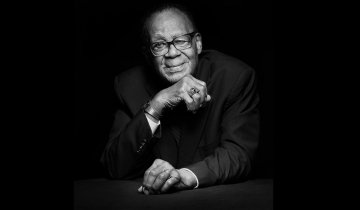New research into political views of those opposed to the Common Core Standards finds that opposition often coincides with negative views about President Barack Obama.
In information gleaned from the latest USC Rossier/PACE Poll, respondents affiliated with the Republican Party are more likely to express opposition to the Common Core Standards than Democrats. However, views toward President Obama are stronger predictors than party affiliations—those who disapprove of President Obama are 92 percent more likely to oppose the Common Core than those who do not.
The analysis, published online in Educational Researcher, was conducted by Morgan Polikoff, Julie Marsh and Tenice Hardaway of USC Rossier, along with David Plank of Policy Analysis for California Education, at Stanford.
“From a strictly descriptive standpoint, it’s useful to know more about Common-Core opposition and what’s behind it,” said Polikoff. “Given these standards remain the law of the land in 40-plus states, it’s valuable information about what’s likely driving opposition.”
The USC Rossier/Pace Poll surveyed 2,350 registered California voters throughout August 2015. This is the fourth such poll, but unlike previous ones—and polling by other groups—that suggested ties between party affiliation and standards support, this is the first poll that has parsed data to determine why party affiliation might matter.
Among some of the other findings:
- Black, Hispanic and Asian/Pacific Islander voters are all less likely to oppose Common Core Standards than white voters; however, these racial differences were explained by differences in other policy and political views.
- Increases in voters’ self-reported knowledge are associated with increasing opposition to the standards—in particular, those reporting “a lot” of CCSS knowledge are 150 percent more likely to oppose the standards than those reporting no knowledge. However, this knowledge effect is driven by specific negative views or misconceptions about the standards. For instance, the study finds “the misconception that states were not allowed to add content to the CCSS is associated with a 64 percent increase in the odds of opposition.”
- Other education policy positions are significantly associated with opposition to the Common Core. Belief that California school funding is adequate is associated with a 52 percent increase in the odds of Common Core opposition. And the stronger a respondent felt there is too much testing in classrooms, the more they opposed the Common Core, as well.
Polikoff noted that, as with all work based on correlations, interpretations should be limited. For instance, although opposition to President Obama could be driving opposition to the state standards, causation could also go in the opposite direction. And although voter responses suggested the presence of misinformation, addressing this misinformation would not necessarily improve support for the standards.
“The results suggest but do not prove that Common Core opposition is often not about Common Core per se—it’s likely about political views (about the president), views on other policies (testing, funding) or beliefs about the standards that may not be true,” Polikoff said.
The polling data do, however, suggest ways for policymakers and administrators to better understand some of the drivers of opposition to the standards. And there are benefits for researchers, too, by showing an innovative approach that uses polling data to better understand public opinion regarding education policy.
Results of the PACE/USC Rossier Poll can be found here. For media inquiries, please contact Ross Brenneman at rossbren@rossier.usc.edu or (213) 740-2327.




